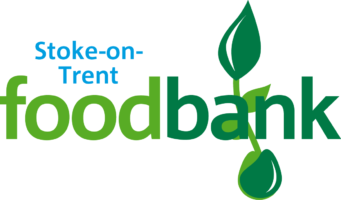10371 HELPED BY STOKE-ON-TRENT FOODBANK IN LAST YEAR
- 10371 people received three days’ emergency food from Stoke-on-Trent foodbank in 2014-15, compared to 10875 in 2013-14.
- Over 1,000,000 people received three days’ emergency food from Trussell Trust foodbanks nationwide in 2014-15, compared to 900,000 in 2013-14.
- Faculty of Public Health supports Trussell Trust’s call to listen to the experiences of people in crisis in order to reduce poverty and hunger in the UK.
Over 10371 adults and children have received three days’ emergency food and support from Stoke-on-Trent foodbank in the last 12 months.
Anna Willcocks, Project Manager of Stoke-on-Trent foodbank commented on the local figures, saying “although our figures for the year show a slight decrease, there continues to be a need for people in crisis to be supported across our City. We are increasing the accessibility of our service, with additional new distribution centres, including one opening this week (23rd April) and others in the pipeline”
The latest figures published by the Trussell Trust nationally show that over 1,000,000 people have received at least three days’ emergency food from the charity’s foodbanks in the last twelve months, more than in any previous year. The data indicates that despite signs of economic recovery, the numbers of people turning to foodbanks continues to grow.
1,084,604 people – including 396,997 children – received three days’ food from the Trussell Trust’s network of over 400 foodbanks in 2014/15, compared with 913,138 in the 2013/14 financial year. This is an increase of 19 percent.
At the Stoke-on-Trent foodbank, the top three reasons for foodbank referral were benefit delay 32 %; low income 23%; benefit change 17%.
The top three primary referral causes at Trussell Trust foodbanks nationally were benefit delays, low income and benefit changes.
Last year local people donated 81 tonnes of food to Stoke-on-Trent foodbank, and over 200 volunteered. Local schools, businesses and faith groups have provided vital support to the foodbank, enabling us to give three days’ nutritionally balanced food and support to people in crisis.
Of the 10371 people given three days’ emergency food, 3973 were children.
Qualified teacher and mother of two, Susan, says: ‘I have an 18 month old son and an eight year old stepson, I work part time as a teacher and my husband has an insecure agency contract. There are times when he doesn’t get enough hours of work, and we really struggle to afford food and pay the bills. The foodbank meant we could put food on the table’
Foodbank growth:
Nationally, in the last year total numbers of foodbanks launched rose by five percent, whilst numbers of people helped by foodbanks rose by 19 percent.
Trussell Trust UK foodbank director Adrian Curtis says:
‘Despite welcome signs of economic recovery, hunger continues to affect significant numbers of men, women and children in the UK today. It’s difficult to be sure of the full extent of the problem as Trussell Trust figures don’t include people who are helped by other food charities or those who feel too ashamed to seek help.
A mum at a children’s holiday lunch club said that she was skipping meals to feed her children but couldn’t bring herself go to a foodbank, saying: “There are people out there more desperate than me. I’ve got a sofa to sell before I’ll go to the food bank,” she replied. “It’s a pride thing. You don’t want people to know you’re on benefits.”
Adrian Curtis continues:
‘Trussell Trust foodbanks are increasingly hosting additional services like debt counselling and welfare advice at our foodbanks, which is helping more people out of crisis. The Trussell Trust’s latest figures highlight how vital it is that we all work to prevent and relieve hunger in the UK. It’s crucial that we listen to the experiences of people using foodbanks to truly understand the nature of the problems they face; what people who have gone hungry have to say holds the key to finding the solution”.
Marcella, a former dental assistant who has chronic back pain and is recovering from a spinal operation, was helped by the foodbank recently and says: ‘It’s so hard to pay rent and survive at the moment. I have friends who are working minimum wage jobs who have had to go to foodbanks. People should not just be surviving, they should be able to live and have a life. I was less than surviving when I went to the foodbank. Going to a foodbank was very emotional for me, I felt a bit ashamed at not being able to support myself but they took the pressure off, they gave me advice and helped me to find a support worker. The foodbank gave me faith that there are people who understand and who you can trust. We need to stop judging people and listen to every individual and understand how they got into the situation.’
Dr John Middleton, Vice President of Faculty of Public Health says: ‘The rising number of families and individuals who cannot afford to buy sufficient food is a public health issue that we must not ignore. For many people, it is not a question of eating well and eating healthily, it is a question of not being able to afford to eat at all. UK poverty is already creating massive health issues for people today, and if we do not tackle the root causes of food poverty now we will see it affecting future generations too. The increased burden of managing people’s health will only increase if we do not address the drivers of people to food banks.’
As well as providing emergency food, Stoke-on-Trent foodbank signposts guests at their 13 distribution centres to other relevant services in the local area. Many Trussell Trust foodbanks, including Stoke-on-Trent, are partnering with other agencies to provide additional services such as welfare advice, budgeting help, debt support and cooking on a budget sessions at their centres, helping people to break out of crisis.
